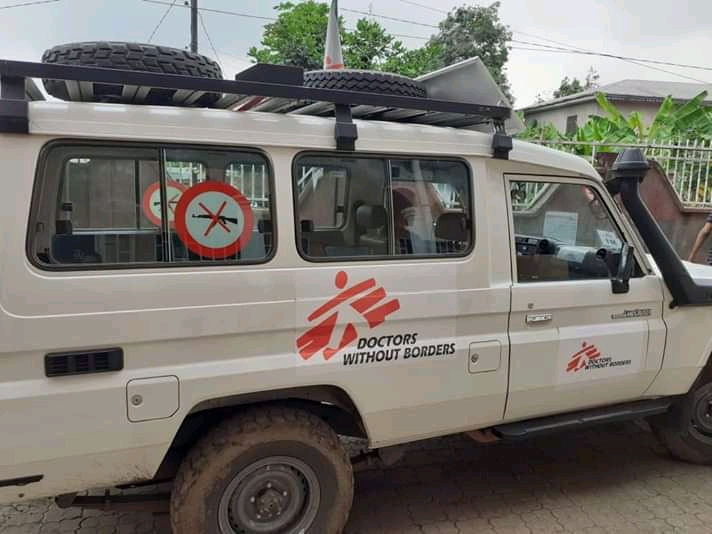By Neville Mesumbe
BUEA, Cameroon – Doctors Without Borders, DWB, have temporarily suspended their activities in Mamfe, Southwest Region of Cameroon until the end of July.
“We have made the difficult decision to temporarily suspend our activities in Mamfe until the end of July. This decision is temporary. We have suspended our ambulance service in Mamfe and no longer have medical staff present in the regional hospital, but we will continue to support community health workers, and cover the hospital fees for patients they refer until the end of July,’’
A release from the organisation indicates that the decision to suspend their humanitarian activities in the area is as a result of COVID-19 travel restrictions and lack of experienced personnel.
“Doctors Without Borders lack specialised staff and equipment needed to ensure that we can maintain the optimal quality of our medical activities in some places around the world,” the release reads.
Doctors Without Borders emergency Coordinator for Cameroon, Albert Viñas, had earlier indicated that the organisation’s medical staff and front-line workers face the risk of being severely affected by the pandemic.
“It’s key to protect them and ensure safe patient flow, triage, and infection prevention and control measures in dedicated medical facilities.”
According to the organisation, other medical projects in the Northwest, Southwest and Far North and in Yaounde are not disrupted. The humanitarian organisation says they are committed to ensuring that vulnerable and isolated communities continue to have access to free and quality healthcare.
The organisation has promised to do its best in re-evaluating the situation in Mamfe over the coming weeks. Since arriving in the country more than 30 years ago, Doctors Without Borders have fought against several infectious disease outbreaks such as HIV/AIDS, Buruli ulcer, measles and cholera. Earlier this year, the organisation reported that they have carried out a cholera intervention in Bakassi peninsula in the country’s Southwest, vaccinating close to 40,000 people.
